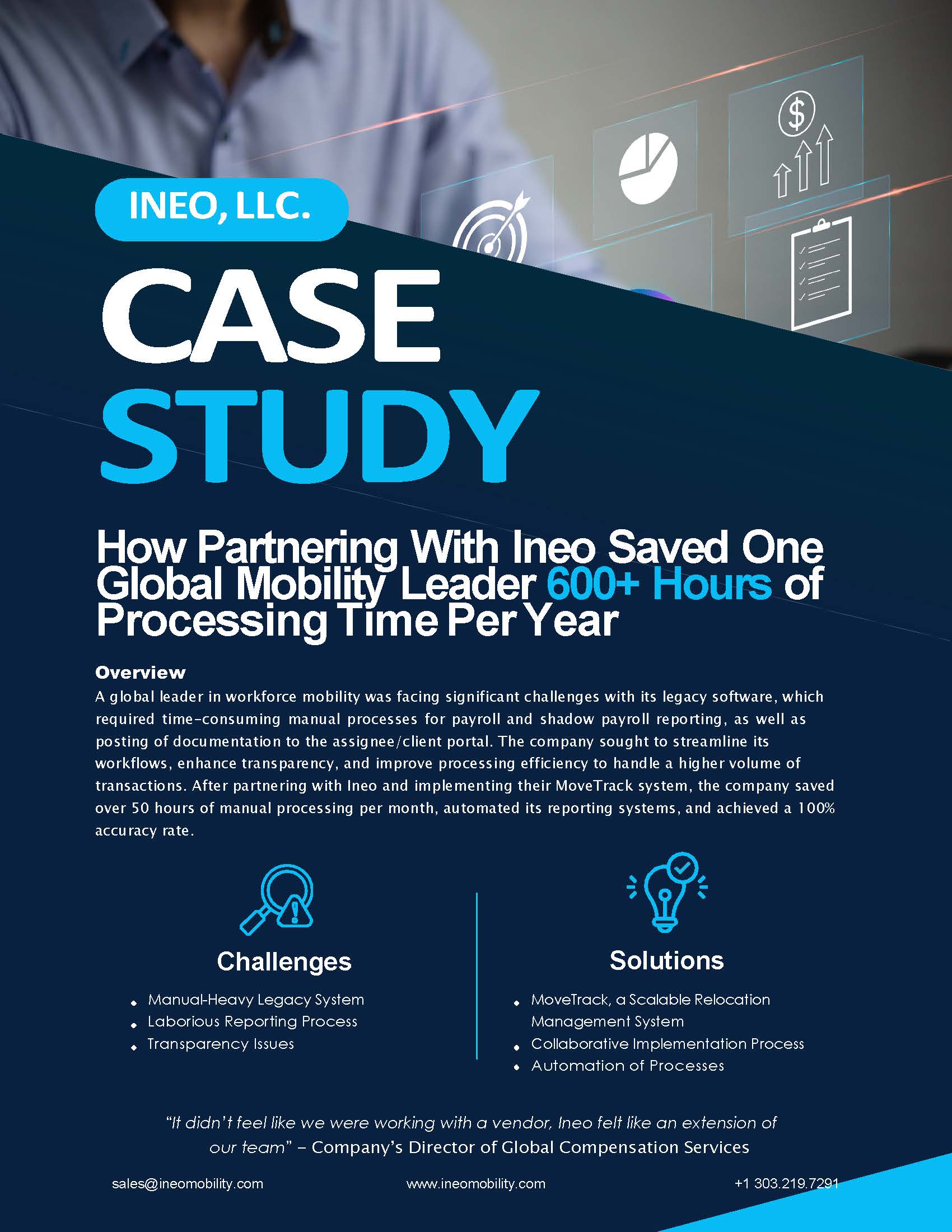How Rental Legislation and Tax Laws Shape Global Mobility Policies In 2025

The global mobility landscape is being reshaped by evolving rental legislation and shifting tax regulations. For HR, payroll, and global mobility teams managing assignments to the UK, the interplay between the Renters Reform Bill and post-Brexit tax laws presents new challenges and opportunities. These legislative changes highlight the need for advanced tools to manage compliance, streamline assignment processes, and optimize relocation budgets effectively.
The Renters Reform Bill: Implications for Mobility Programs
The UK’s Renters Reform Bill, set to take effect in 2025, introduces significant changes aimed at improving tenant rights and reshaping landlord obligations. Key provisions include:
- Abolishment of “no fault” evictions (Section 21): While this enhances housing stability for tenants, it may complicate housing arrangements for short-term assignees as landlords could grow more cautious about lease terms.
- Stricter Landlord Regulations: Landlords must adhere to increased compliance measures, potentially reducing the availability of rental properties and impacting costs.
- Standardized Tenancy Agreements: These aim to simplify contracts but may limit the flexibility needed for temporary or transitional housing arrangements.
For mobility teams, these changes necessitate a thorough understanding of housing and tax laws to ensure compliance when negotiating leases, establishing budgets, or reimbursing rental costs.
The Brexit Factor: Shaping Tax and Compliance Challenges
Since Brexit, tax regulations and compliance obligations have evolved, increasing the complexity of managing global assignments. For mobility programs sending employees to the UK, two major tax-related considerations arise:
1. Tax Residency Compliance:
- Assignees spending significant time in the UK may trigger tax residency, impacting payroll obligations and relocation cost structures.
- Tax laws surrounding rental reimbursements and housing allowances must be meticulously tracked to avoid penalties.
2. Cross-Border Taxation:
- Diverging tax treaties between the UK and EU require precise calculations for housing costs that fall under taxable benefits.
- Brexit has shifted certain double taxation agreements, adding a layer of complexity to payroll reporting.
These shifts highlight the need for mobility teams to remain agile and informed, ensuring that every aspect of relocation—from budgeting to reporting—adheres to current laws.
Leveraging Global Mobility Software to Address Legislative Complexity
Advanced Global Mobility Assignment Management Software, such as Ineo’s MoveTrack, empowers HR, payroll, and global mobility teams to navigate these challenges effectively. Here’s how:
Tax Compliance and Expense Transparency
- Real-Time Updates: Integrated legislative tracking tools provide alerts for changes in UK tax laws or tenancy regulations, ensuring mobility programs remain compliant. MoveTrack has a built in tax engine, and our team of SMEs deep dive into research to ensure accuracy and timeliness.
- Automated Calculations: Tools calculate tax implications for housing allowances, lease reimbursements, and other relocation benefits, reducing manual errors and ensuring accurate reporting.
- Expense Transparency: Customizable dashboards provide visibility into rental reimbursements and tax reporting, streamlining communication between mobility teams and finance departments. This includes cost estimates and gross-up calculations for taxable benefits such as housing allowances or reimbursements.
Practical Steps for Global Mobility Teams
- Revise Policies: Update housing and tax policies to align with the Renters Reform Bill and Brexit-driven tax regulations. Ensure flexibility in housing allowances to accommodate market variability.
- Educate Stakeholders: Equip HR, payroll, and talent managers with data, sourced from MoveTrack, on evolving tax laws and compliance requirements to mitigate risks.
- Adopt Technology: Invest in Global Mobility Assignment Management Software, such as Ineo’s MoveTrack, to automate compliance tracking, manage budgets, and streamline processes across multiple jurisdictions.
Conclusion: Transforming Challenges into Opportunities
The combined impacts of the Renters Reform Bill and Brexit-era tax changes require a proactive, technology-driven approach to global mobility. By leveraging assignment management software, HR, payroll, and mobility teams can mitigate compliance risks, optimize relocation budgets, and ensure seamless employee transitions.
With MoveTrack, organizations can navigate legislative complexity while enhancing the efficiency and effectiveness of their mobility programs. Contact us today to learn more!
Learn how MoveTrack saved one company 600+ hours a year in processing time!
Global Mobility Resources
Learn more about what’s going on at Ineo and insights into the complex world of global mobility from the industry’s top thought leaders and innovators.
Request A Demo
Whether you are new to the world of global mobility or you’ve been in the business for a while, Ineo is here to assist you.
The best way to learn how Ineo’s global mobility software can help your company revolutionize your global mobility program and support your business strategy is to see it in a demo.
Fill out this form to get started today.
Get Started





